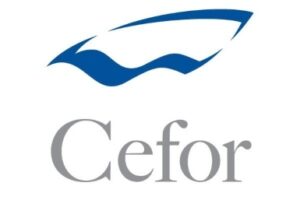By Geoff Waddington, HonFIIMS and IIMS Immediate Past President, Mike Schwarz, IIMS Chief Executive Officer with contributions from Craig Norton, President, InspectX

IIMS and its Professional Assessment Committee remain concerned at the quality of reports that it sees, both in general terms, but in particular when assessing a candidate’s suitability for an upgrade.
The emergence of new surveyors into the industry, coupled with their desire (along with more experienced practitioners) to utilise the latest report writing software is creating a concerning trend. In writing this article we want to remind surveyors no matter what method they use to prepare their surveys of the importance of accuracy and giving sufficient meaningful and detailed, factual information to the client. That is and always will be the role of a marine surveyor. To further illustrate this point, the authors have used some verbatim comments taken from legal teams who have been asked to comment and give opinions on surveyors’ report in courts and for insurance companies when assessing claims and considering potential litigation. For obvious reasons, the sources of these comments are not revealed. Continue reading “The opportunities and threats presented by report writing software”
 The IMO Marine Environment Protection Committee (MEPC) 83 session was held from 7-11 April 2025. The IMO MEPC is where the reduction of shipping’s impact on the marine environment is discussed. MEPC oversees the work of several sub-committees and influences subjects which cut-across the work of several committees, covering many key regulations.
The IMO Marine Environment Protection Committee (MEPC) 83 session was held from 7-11 April 2025. The IMO MEPC is where the reduction of shipping’s impact on the marine environment is discussed. MEPC oversees the work of several sub-committees and influences subjects which cut-across the work of several committees, covering many key regulations. The Vehicle Carrier Safety Forum (
The Vehicle Carrier Safety Forum ( The “E-cars on Board – A Safe Passage”
The “E-cars on Board – A Safe Passage”  The Nordic Association of Marine Insurers (Cefor) has released its 2024 hull trends from the Nordic Marine Insurance Statistics (
The Nordic Association of Marine Insurers (Cefor) has released its 2024 hull trends from the Nordic Marine Insurance Statistics (

 BMP Maritime Security has been published by a series of industry Associations, including BIMCO, ICS, IMCA, INTERCARGO, INTERTANKO & OCIMF supported by over forty maritime stakeholders. It is a consolidated and enhanced publication Best Management Practices (BMP) for Maritime Security (MS).
BMP Maritime Security has been published by a series of industry Associations, including BIMCO, ICS, IMCA, INTERCARGO, INTERTANKO & OCIMF supported by over forty maritime stakeholders. It is a consolidated and enhanced publication Best Management Practices (BMP) for Maritime Security (MS).
 The
The 
 The
The